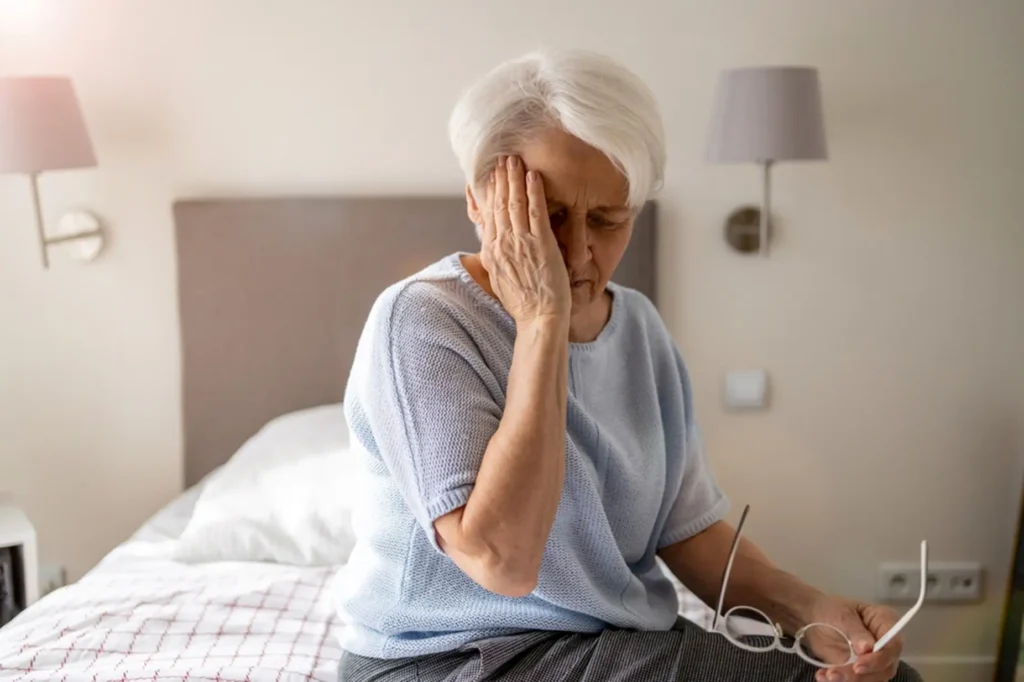Don’t make the mistake of taking dizziness for granted. Dizzy spells come and go, often forgotten until they return, but, for the elderly in particular, they may be much more than a nuisance or annoyance. Sometimes stooping or rising quickly from a seated or reclining position will make you temporarily lightheaded when you achieve a certain age, but you may shrug it off. After all, you have experienced this before in earlier stages of your life. Dr. Alexander Salerno, MD, at Salerno Medical Associates, reminds us that the elderly are prone to falls, which are commonly instigated by dizzy spells. Falls often lead to skeletal and joint injuries among this age group with serious consequences resulting in hospital or nursing care.
Dizziness is definitely more than a nuisance, because as Dr. Salerno points out, of injuries from falls are at epidemic proportions for adults above the age of 65. This is not a recent concern. According to the U.S. Centers for Disease Control & Prevention (CDC), one in every four U.S. residents 65 and over (older Americans) is injured in a fall every year. In real time, the CDC statistics further report:
- Every 11 seconds an older American is treated for injuries from a fall in a hospital emergency room
- Every 19 minutes — 75 every day— an older American dies from a fall
Most of these individuals are living independently at home when serious injuries from falls occur, and it can be the end of their independence. It can also start with a bout with dizziness and it ends with impairments and loss of mobility due to hip and other fractures and joint dislocations. The healing process is typically much slower and short of full recovery, threatening living at home and an active lifestyle.
“Due to these serious health concerns, it is vital that the cause of dizziness and imbalance be determined and addressed in an attempt to reduce significant health hazards.’ — Dr. Alexander Salerno
Reasons Can Vary for Dizziness in Elderly
There is no single explanation for the causes of dizziness among the elderly. Not every dizzy spell is ominous. The explanation could be hunger or motion sickness, but it could also be a warning sign of the presence of a complicated disorder or the imminence of cardiovascular disease and the imminence of a heart attack or stroke
What are some of the causes of dizziness?
Understanding the causes of dizziness in the elderly can help pinpoint exactly what kinds of treatment options have the best chance of being effective. As people mature, there are multiple possible causes of dizziness that can have far reaching repercussions on their quality of life. Some of the most common causes of dizziness in the elderly include:
- Inner ear infections and disorders such as Meniere’s disease, which affect your balance and vertigo; the feeling that your head is spinning from benign paroxysmal positional vertigo, and motion sickness.
- Reduced blood flow to the brain can cause dizziness and the reasons might be traced to any of the following:
- Dehydration, which is more prevalent in the elderly than younger age groups;
- Atherosclerosis, the accumulation of plaque inside the arteries;
- Orthostatic hypotension, feeling out of position or unbalanced due to a decrease in systolic blood pressure;
- Heart arrhythmias, or irregular heartbeat, and
- Transient ischemic attack, a stroke of short duration known as a TIA.
- Older Americans are likely to be taking multiple drugs for varying conditions and dizziness may be invoked by many as side effects, notably sedatives, tranquilizers, blood pressure drugs, antidepressants and anticonvulsants.
- Anemia and iron deficiency in the blood;
- Anxiety disorders, as well as concussions, migraines, and panic attacks;
- Hypoglycemia, low-level blood sugar of associated with treatment for diabetes;
- Vision impairments are common among the elderly and any or all the following might lead to dizziness: cataracts. glaucoma. macular degeneration and diabetic retinopathy. These obstructions in what you see around you may lead to a feeling of imbalance affect the vision of the elderly, leading to imbalance of the legs and feet and deteriorating equilibrium.
- The normal aging process saps muscle strength in the legs and in lower joints, lessening mobility and leading to imbalance and dizziness in older adults. There is also more of a propensity for arthritis and the weakening and thinning of bones resulting in instability and unsteadiness.
- Poor eating habits and nutrition, including skipping meals and too many sweets, weaken the body and cloud the mind, contributing to dizzy spells.
How Do We Treat Dizziness in the Elderly?
For starters, physicians like Dr. Salerno have to consider all the probable reasons for dizziness and whether it is a symptom of something more serious. There are so many conditions, diseases and prescribed drugs previously outlined that can lead to dizziness. It requires a keen and intimate understanding of the patient and his or her lifestyle to get to the root of the problem before it can be diagnosed and treated.
Treatments for conditions causing dizziness include medication such as benzodiazepines. The key for overall optimal health for the elderly, with an eye toward issues like dizziness and its potential consequences, are a nutritious dietary regimen, sufficient sleep and rest, socialization, not isolation, and keeping the home environment safe from falls.
Receive Personalized Treatment for Dizziness Today
Combating dizziness in the elderly requires having a compassionate primary care team to deliver an accurate diagnosis and can help treat the problem at the source. The Nirvana Healthcare Management Services network has an array of primary care services that work with our patients to identify exactly what’s wrong with their systems and identify the causes of dizziness. We work with our patients to provide personalized and compassionate care when you or a loved one need it the most.
Contact one of our primary care practices in Newark, NJ, facilities and get the personalized care you deserve.

